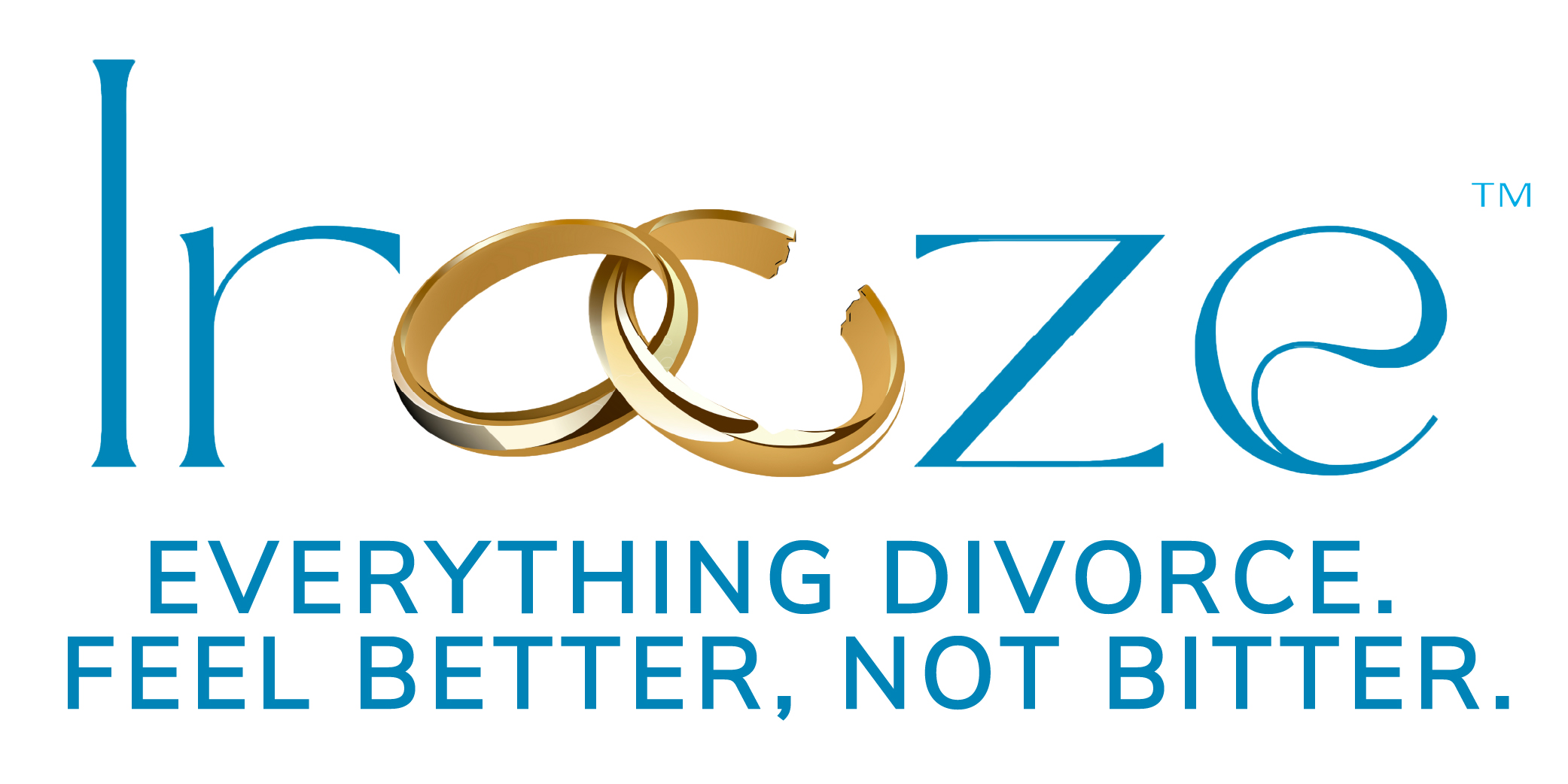Divorce is usually only one of many options for couples in a marriage. People often want things to work out between their spouses because of the children, for love, family, and sometimes fear of what life will become after divorce. This goes to show that divorce isn’t an easy option for couples.
No two relationships are the same, which makes divorce unique among couples. So, why A wants to divorce their partner may differ from why B wants to get a divorce. A minor issue that could be passed for something trivial in one relationship could be the same reason why another relationship is breaking apart.
Whether you’ve been married to your spouse for a few months, years, or decades, the thought of divorce isn’t always easy, and it’s more difficult if you’re unsure of getting a divorce. Suppose considering the possibility of divorce is new to you or you’ve been feeling unsure of entertaining the notion of divorce. In that case, certain signs could help you hold firm to your decision and help you decide if not staying in the marriage is the right thing to do.
Should I Get a Divorce? 10 Obvious Signs It Might Be Time
As stated earlier, individuals’ relationships are unique and have distinct issues that pertain to them. However, there are some negative behaviors that, when introduced into any relationship or marriage, can suck out the peace and love and also become detrimental to the life and health of both the spouse and children, if there are any. Sometimes, these issues serve as a wake-up call, signaling that significant changes are necessary to improve the relationship.
Therefore, the following signs are what to watch out for in your marriage to know to decide if divorce is the next course of action:
1. Recognizing Emotional or Physical Abuse in Your Marriage
Domestic abuse can either be physical or emotional. It could entail physical violence that inflicts pain and causes injury to the body or emotional manipulation. You see, when abuse gets to the point where one or both spouses are hurting each other or the children, it solely indicates signs of irreconcilable differences.
It’s quite difficult to know when to divorce your spouse in a domestic abuse situation. It’s possible to fear walking away from the marriage because you can imagine what your spouse will do to you or your kids, or sometimes it could be that you’re experiencing abusive behaviors between periods of peace and obvious stability. All these contribute to huge confusion in determining if or when you should file for divorce.
However, you should seriously consider divorce when you’re experiencing domestic abuse of any kind. Reach out to a local shelter for proper help and guidance on what your next steps. This is to ensure you protect yourself and your children from harm that could be life-threatening. It is crucial to avoid making an emotionally reactive decision and instead approach the situation with clarity and self-awareness.
If you are experiencing emotional abuse, speaking with a Divorce Coach can be of extreme help! Their role will be to prepare you for the “delicate” conversation with your spouse – such that, what to say, what to not say and preparing your nerves and expectations.
2. When Communication Breaks Down in a Marriage

Communication is often said to be a key factor in any relationship. While this is true, not all forms of communication indicate a marriage is well-to-do, and lack of communication is a big disadvantage. When you notice that you and your partner don’t talk as much as you do, or when you do, it often results in fights and passive aggression that last for days. This could signify that one partner is already losing interest in the union.
Dying communication could also result in indifference in discussing your feelings or the hard stuff that matters or being dismissed and ignored. This signals that the other person doesn’t matter in the marriage, and dead or dying communication often leads the marriage downhill unless there are concerted efforts to work it out.
Effective communication is essential for maintaining a healthy relationship. It just may be that the two of you simply don’t know one another’s communication style and require help from a Divorce Coach who specializes in helping you both understand, learn and apply new tools that can either solidify your relationship- whether as a married couple or, prepare you to exceptionally co-parent.
3. Infidelity
Infidelity breaks trust and creates so many hurtful emotions. For most couples, it’s a huge sign to get a divorce. While there are situations and real experiences of couples who have passed through these stages and have been able to resolve their differences, revitalize their intimacy, and appreciate each other, there are others who have found it difficult to save their marriage due to infidelity. Understanding one’s feelings towards their ex-husband can be crucial in navigating these emotional complexities.
This is often the case when the cheating spouse is unapologetic or isn’t willing to address the issue. When this is the situation, it may be time to consider divorce. Divorce could also be the best way to resolve your differences if the cheating spouse is finding it hard to move past the transgression or the cheating spouse wants to move on from the marriage.
4. Lack of Respect in Marriage as a Divorce Warning Sign
In the same way, communication is essential in marriage, and so is respect. For every marriage to thrive, it needs a big dose of mutual respect, including recognizing each partner’s own personality, so if you don’t feel respected by your partner, especially when your partner continually dismisses your thoughts, feelings, boundaries, and ill-treatment.
Lack of respect for one partner can make them feel lonely, resentful, isolated, and abandoned. No one should feel this kind of unhappiness in a marriage. Hence, if you’ve tried every means to make your partner understand and work out the issue of lacking respect, the best option may be to get a divorce, which will be great for your health.
5. Your Marriage Lacks Intimacy
Intimacy, both emotional intimacy and physical intimacy, is one of the bedrocks of a marriage. It’s what brings people together as well as keeps them together. A lack of intimacy, both physical and emotional, is sometimes what leads to infidelity. This could also be a sign that your marriage is falling apart, especially when the feeling of closeness and fondness for your spouse is missing.
Most of the time, humans find a way to fill their void. So, the spouse may have found intimacy with someone else, which makes them disinterested in the other spouse. You need to understand that intimacy isn’t only about sex; it’s also about wanting to be close to your partner, cuddling, and spending quiet time together.
When your marriage lacks intimacy for a long time and without the desire to revitalize, it might not be easy to restore your marriage. Here, it may be best to get a divorce to prevent cheating and also help you maintain healthy mental health.
Emotional disengagement or feeling like roommates, like living parallel lives with little emotional connection, is a powerful sign that the foundation of the marriage may have shifted irreversibly
Did you know that divorce changes a man?
6. There Are No Common Grounds on Important Issues, Including the Children

You would agree that opposite opinions and differences may be exciting and refreshing at the start of a relationship. However, when two people tie the knot, there’s a need for some common grounds for the marriage to work, especially about the upbringing of the children, core values, and other important matters.
If your partner refuses to meet you halfway on vital issues or disagrees on factors like deciding where to live the children, and even whether to have children or a career, and neither spouse is willing to compromise, this could lead to resentment and detachment. In such situations, the marriage may be headed for a split, and making such a decision requires careful consideration due to the significant consequences that follow.
7. Are You Staying Married Because of External Pressure?
External pressures can also be a significant factor in deciding whether to get a divorce. These pressures can come from various sources, including family, friends, and societal expectations. If you’re feeling pressured by others to stay in an unhappy marriage, it’s essential to take a step back and evaluate what’s best for you and your well-being.
Are you staying in the marriage due to external pressures, such as fear of what others might think or fear of being alone? Are you feeling suffocated by the expectations of others, rather than making a decision that’s right for you? These are crucial questions to ask yourself.
Many therapists warn that staying in a marriage out of comfort, habit, or fear can mean you’re “settling,” which may hinder your emotional growth and long-term happiness.
Seeking the advice of a marriage counselor can be incredibly beneficial in such situations. A professional can help you navigate these external pressures and make a decision that’s best for you, rather than one influenced by others. Remember, your happiness and mental health should be the priority.
8. Have You Tried Everything to Save the Marriage? What to Consider Before Divorce

If you’re considering divorce, it’s essential to evaluate whether you’ve made sufficient efforts to save the marriage. This can include seeking marriage counseling for talk therapy or, if you prefer a scientific-based approach that subjectively looks at the couple’s strengths and areas of concern, we would highly recommend taking the Irooze self assessment. To avoid future regrets and to prepare you for the possibility of needing to co-parent one day, it is critical that you make a genuine attempt to address the issues that are causing problems in the relationship and determine, what your next steps should be.
Have you sought the help of a marriage counselor or therapist to work through your issues? Have you made a genuine attempt to address the problems in your relationship, or are you feeling stuck and unsure of how to move forward? These are important considerations.
When emotions cloud judgment, working with professionals like a therapists for emotional processing, divorce coaches for clarity, or attorneys for legal insight, can help you assess your relationship with clarity and confidence.
Does one of you have one foot out the door while the other is trying to salvage the marriage? The Irooze self assessment is definitely worth considering as it will prepare you for the FACTS and analyze your relationship in 6-10 different areas, rather than focus on sharing stories of disappointments.
Additionally, it’s crucial to identify any underlying issues, such as emotional abuse or domestic violence, that need to be addressed before you can move forward. Sometimes, these issues can be so severe that they make reconciliation impossible, and in such cases, divorce may be the healthiest option.
9. Building a Support System
Finally, it’s essential to consider building a support system as you navigate the divorce process. This can include seeking the help of friends, family, a Divorce Coach or a therapist, as well as joining a support group for people going through similar experiences.
Having the “proper” support system in place, such as friends, family is critical to ensuring that you to take the “right” steps forward while navigating the divorce process. You need people to tell you the truth, rather than just agree with you and pump the fear, worries and anxieties. This is why we always recommend “neutral” professionals who have no vested interest in your decisions. Their focus is on YOU. Are you feeling lonely or are you feeling alone– do you know the difference between the two ? or do you have a network of people who can provide emotional support and guidance? These are important questions to consider.
Joining the Irooze divorce support groups for either mothers and fathers. Our online community can also be incredibly beneficial. Having a support system can make a significant difference in how you cope with the emotional and practical challenges of the divorce process. Send us an email info@irooze.com for more details.
For many couples later in life, often termed “grey divorce,” long-standing relationships can offer a fresh opportunity for independence, personal growth, and fulfillment. Just know that these transitions bring unique emotional and logistical challenges.
For dads, feel free to also watch other men’s divorce related pain and challenges and how they go through their emotional rollercoaster. Learning from other people is critical.
Need Help Deciding on Divorce? Support Resources & Coaching Options
Talking to an experienced Divorce Coach might help clear things up if you’re on the fence about whether your marriage is a healthy marriage. They can give you the information you need to understand divorce’s legal and financial side, including things you might have yet to consider.
At Irooze, we offer a free strategy call to help couples figure out the best way forward. We’ll walk you through what divorce looks like before you make any big decisions. Whether you’re still trying to figure things out or know divorce is the right path, we’re here to help!
Reach out today!





